The thing is, Gardiner does give sections devoted strictly to vocabulary and the student is apt to think, "Ah, these are the words to learn." But that would be neglectful because new vocabulary is slipped in within the lessons between those vocabulary sections. Tricky, eh? The new words found there cannot be taken at face value. That is, a new card can be made for each new word, but that will tell you only a fraction of what you could learn about that new word. It's useful for the student to cross check all those new words to see what's going on there. For instance, the word "rain" within the phrase "wind and rain" given within the lesson, not within the vocabulary section, is accompanied with a determinative of a man beating something with a stick, implying a beating rain, but the word "rain" when checked shows a determinative of a standing man, implying a regular rain. When checked further using the transliteration for the presumed sound of the word yet another determinative is used there, a hand holding a stick, which brings us back to driving. So apparently any of those three determinatives will do depending on the type of rain you want to describe. Doing all this double, triple, quadruple checking is a rather slow and tedious process, researching each word as far as one can reasonably go, but it results in a deeper understanding and ultimately makes memorization come naturally. It also marks the difference between an A student and the guy who drops the subject in frustration.
These are scans of index cards produced from the text. The cards themselves are only minimally useful as flash cards. It is writing them that is the point, adjusting them in photoshop, uploading and labeling them, bringing them here to a table and naming them again, all of that handling fairly well drives them into permanent memory.







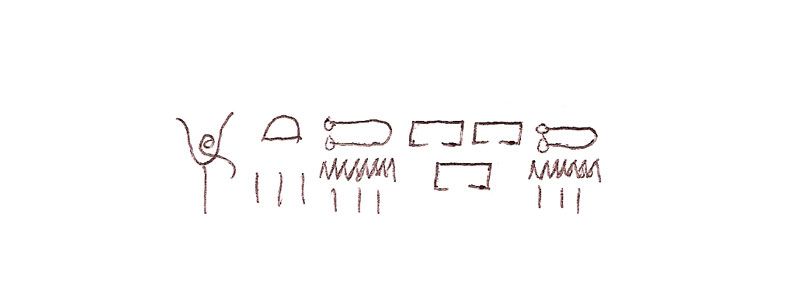

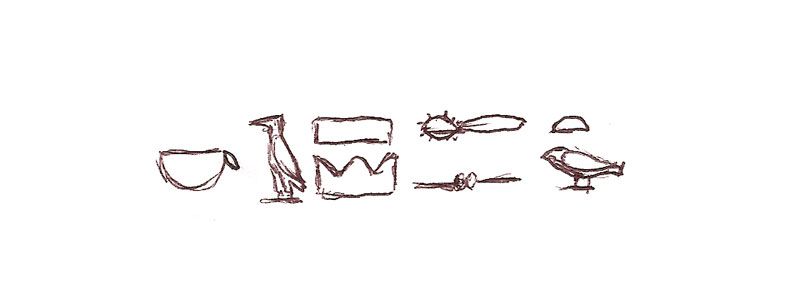

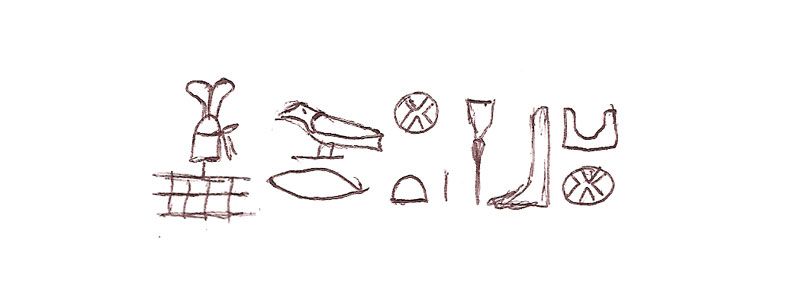





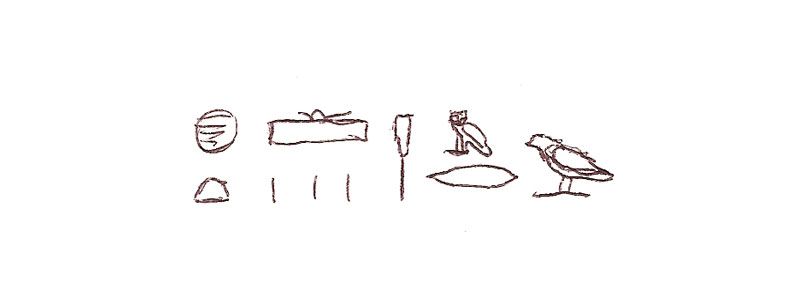



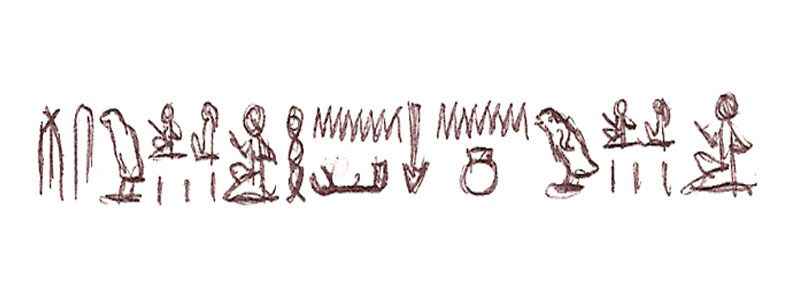

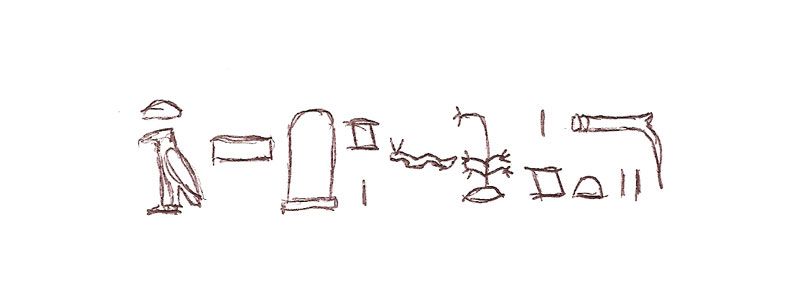
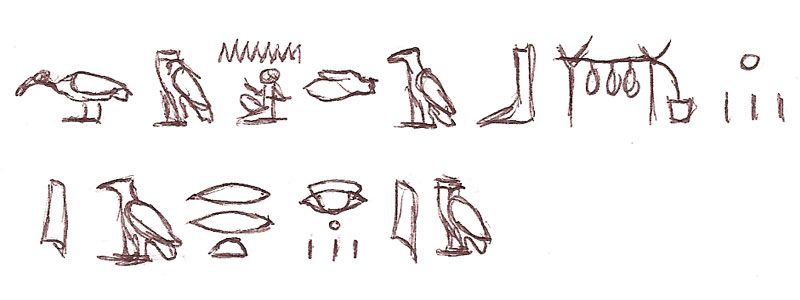








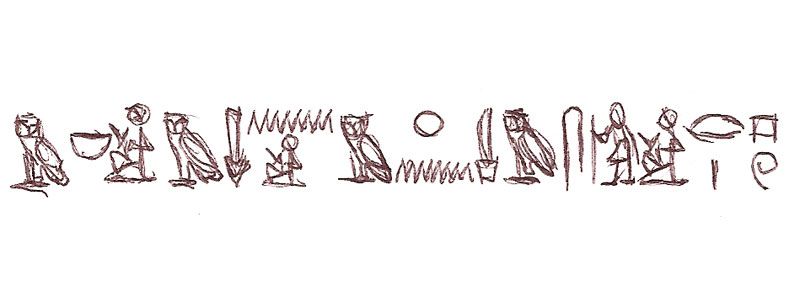
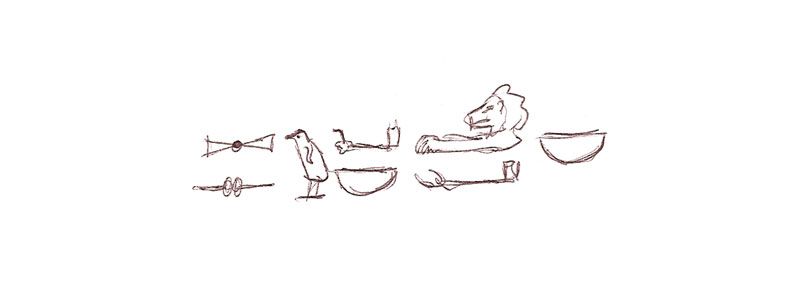
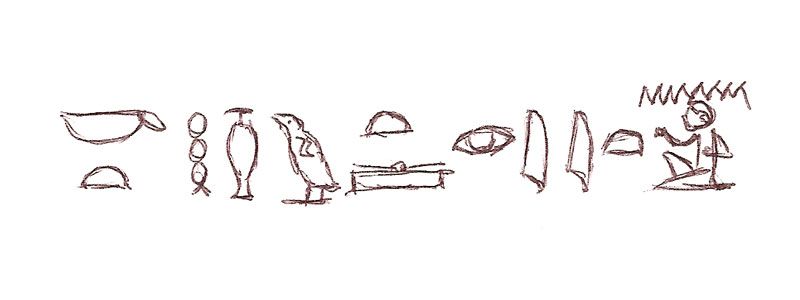
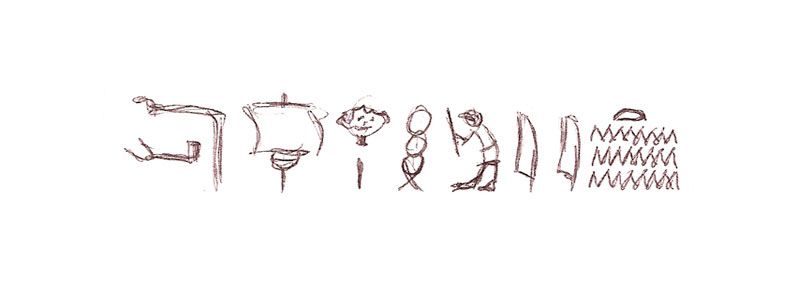
No comments:
Post a Comment